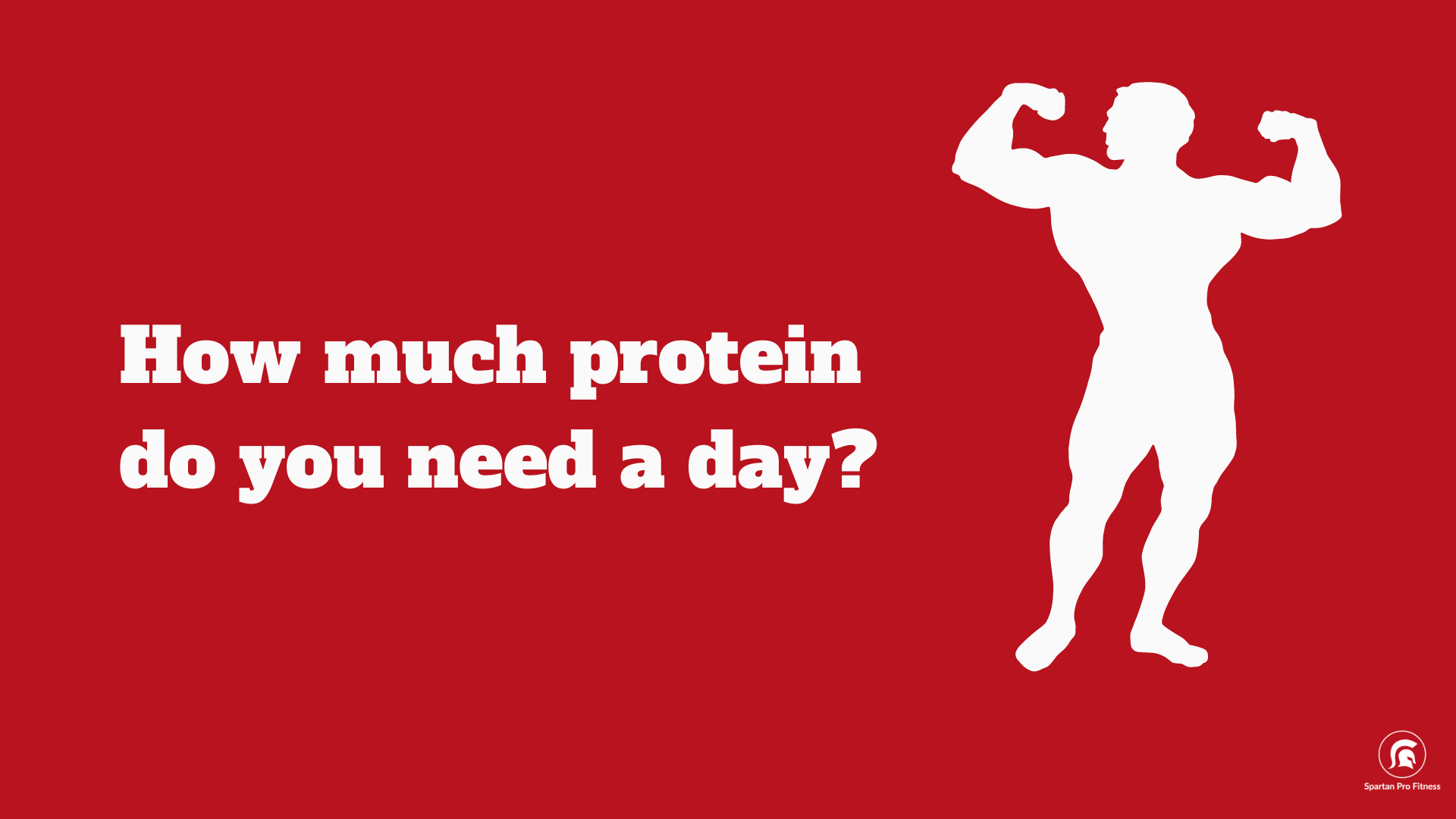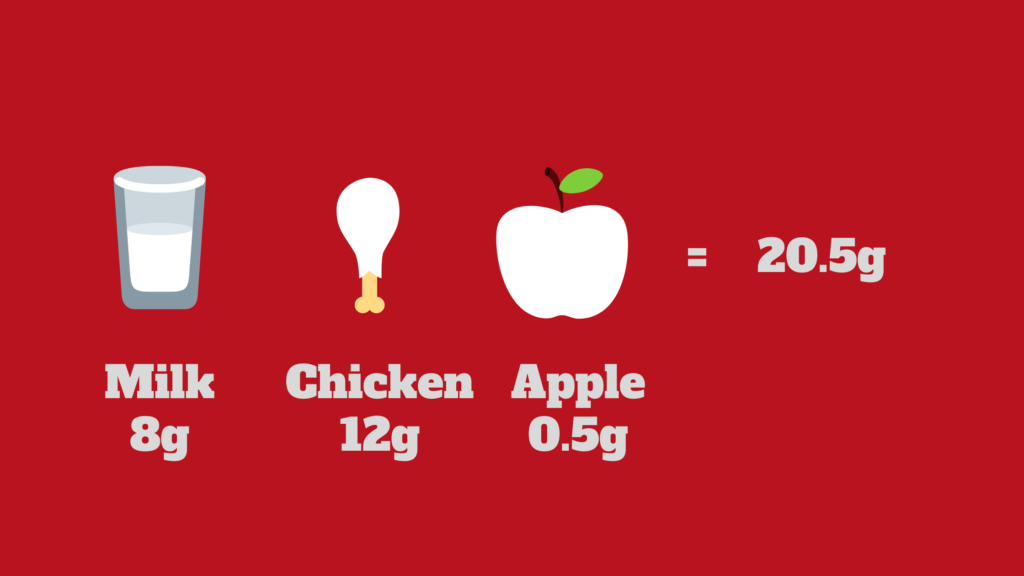
Protein is an essential nutrient that helps your body build and repair tissue, make enzymes and hormones, and control cell growth. It’s no wonder that protein has been getting a lot of attention lately – but how much do you really need to be consuming every day?
What is protein and what are its benefits?
Protein is a nutrient essential for the growth and repair of tissues in the body. It is also required for the production of enzymes and hormones. Protein can be found in both animal and plant foods.
There are many benefits to including protein in your diet. It helps to build and repair muscle tissue, provides a source of energy, and helps to keep you feeling full. Protein is also necessary for the proper functioning of the immune system.
There are many different sources of protein, but not all proteins are created equal. The best sources of protein for bulking are those that contain all the essential amino acids (the so-called “complete proteins”). Good sources of complete protein include meat, poultry, fish, eggs, and dairy. Soy and quinoa are also good sources of complete vegetarian protein for vegetarians and vegans.
How much protein do you need every day?
The amount of protein you need every day depends on a few factors, including your age, activity level, and muscle mass. The Recommended Daily Allowance (RDA) for protein is 0.8 grams per kilogram of body weight or about 55 grams per day for the average adult. However, many experts believe that most people need more protein than the RDA, especially if they are active or trying to build muscle.
There is no one-size-fits-all answer to how much protein you need, but a good rule of thumb is to aim for 1 gram per pound of body weight. So, if you weigh 150 pounds, you would need about 150 grams of protein daily. You can get this from food or supplements, but it’s best to get most of your protein from whole food sources like chicken, fish, eggs, and beans.
If you’re active or trying to build muscle, you may need even more protein. A standard recommendation for athletes and bodybuilders is to consume 2-3 grams of protein per pound of body weight. So, if you weigh 150 pounds, you would need 300-450 grams of protein daily. To get an idea of how this fits into your diet, a 3-ounce serving of chicken breast contains about 25 grams of protein, while a cup of cooked lentils has 18 grams.
How to calculate how much protein you need
If you’re trying to bulk up, lose weight, or just maintain your current weight, you need to make sure you’re getting enough protein. But how much protein do you really need?
The amount of protein you need depends on a few factors, including your age, activity level, and muscle mass. The best way to determine how much protein you need is to use a protein calculator.
There are a few different formulas that can be used to calculate your protein needs, but the most accurate one is the Harris-Benedict equation. To use this equation, you need to know your Basal Metabolic Rate (BMR). Your BMR is the number of calories you burn in a day while at rest.
Once you have your BMR, multiply it by your activity factor. If you have a sedentary lifestyle, your activity factor will be 1.2. If you have a lightly active lifestyle, your activity factor will be 1.375. If you have a moderately active lifestyle, your activity factor will be 1.55. And if you have a very active lifestyle, your activity factor will be 1.725.
Once you’ve determined your activity factor, multiply it by your BMR to get your total Daily Energy Expenditure (TDEE). From there, you can calculate how much protein you need per day by multiplying your TDEE by 0.36.
For example, let’s say you’re a 30-year-old woman with a sedentary lifestyle and a BMR of 1,600 calories. Your activity factor would be 1.2, and your TDEE would be 1,920 calories. To calculate your protein needs, you would multiply your TDEE by 0.36, which comes out to 691 calories from protein, or 175 grams of protein per day.
Good sources of protein
Protein is an essential nutrient for our bodies. It helps to build and repair tissues, produce enzymes and hormones, and boost our immune system. The recommended daily intake of protein is 46 grams for women and 56 grams for men. However, how much protein you actually need depends on factors such as your age, activity level, and muscle mass.
Good sources of protein include lean meats, poultry, fish, eggs, legumes, nuts, and seeds. If you’re looking to increase your protein intake, consider adding some of these foods to your diet.
Tips for increasing your protein intake
If you’re looking to increase your protein intake, there are a few things you can do. First, try to include protein-rich foods at every meal. This could mean adding eggs to your breakfast, having a salad with chicken or fish for lunch, and including beans or tofu at dinner.
You can also snack on high-protein foods throughout the day, such as nuts, seeds, or yoghurt. Additionally, if you’re struggling to meet your protein needs through food alone, you can supplement with protein powders or bars. Just be sure to talk to your doctor before making any major changes to your diet.

How to get enough protein when bulking
Protein is essential for any fitness goal, but it becomes even more important when you’re trying to bulk up. The average person needs 0.36 grams per pound of body weight, but when you’re lifting weights and trying to build muscle, you need to up that intake to 0.54-0.68 grams per pound. That means if you weigh 175 pounds, you need 97-121 grams of protein each day.
It can be tough to get that much from diet alone, which is why many people turn to protein supplements. Protein powders are an easy way to get the nutrients your body needs without having to eat huge amounts of food. Just mix a scoop with some water or milk and you’re good to go. But with so many different types on the market, it can be hard to know which one is right for you.
Here are a few things to keep in mind when choosing a protein powder:
- Whey protein is a good choice for post-workout since it’s absorbed quickly by the body.
- Casein protein is a slower-digesting form of protein that can be helpful before bedtime since it provides a slow release of amino acids.
- Soy protein is a good plant-based alternative for those who are lactose intolerant or have other dietary restrictions.
- Pea protein is another plant-based option that is high in iron and has a similar amino acid profile to whey protein.
Recipes for high-protein meals
If you’re looking to bulk up, you need to be consuming enough protein. Protein is essential for repairing and building muscle tissue. Without adequate protein intake, you’ll simply not make the gains you’re hoping for. So what are some good sources of protein that can help you reach your goals?
- Eggs are an excellent source of protein and can be easily incorporated into meals. One large egg has around 6 grams of protein. You can enjoy them scrambled, fried, or in an omelette.
- Chicken is another great option for getting protein. A skinless, boneless chicken breast contains around 30 grams of protein. You can roast chicken, cook it in a stir-fry, or have it as part of a salad.
- Beans and legumes are fantastic sources of vegetarian protein. A cup of cooked black beans contains around 15 grams of protein. You can add them to soups, stews, salads, or rice dishes.
- Nuts and seeds are also a good option for getting more protein into your diet. A quarter cup of almonds has around 8 grams of protein. You can enjoy them as a snack on their own, add them to yoghurt or cereal, or use
In conclusion
The amount of protein you need depends on a few factors, including your age, activity level, and muscle mass. There are a few different ways to calculate your protein needs, but the most accurate way is to use a formula that takes into account your lean body mass. Once you know how much protein you need, you can start incorporating it into your diet through foods like chicken, fish, tofu, and legumes.



[…] presence of growth hormone (GH) and helps to promote cell division and differentiation, as well as protein synthesis and tissue […]